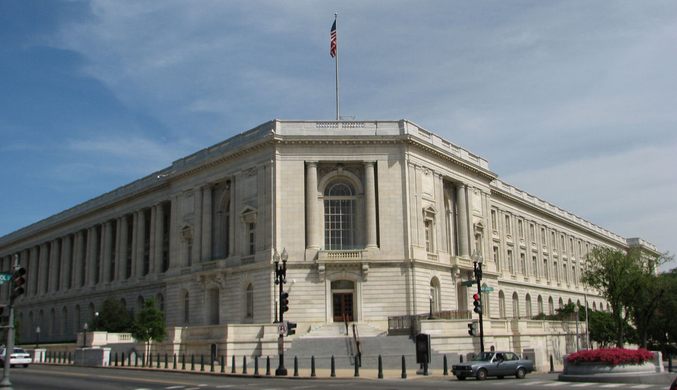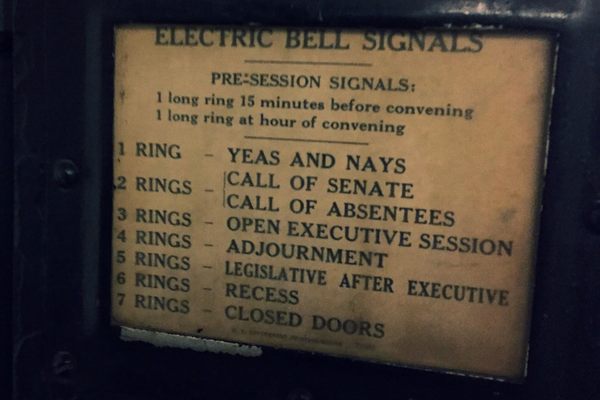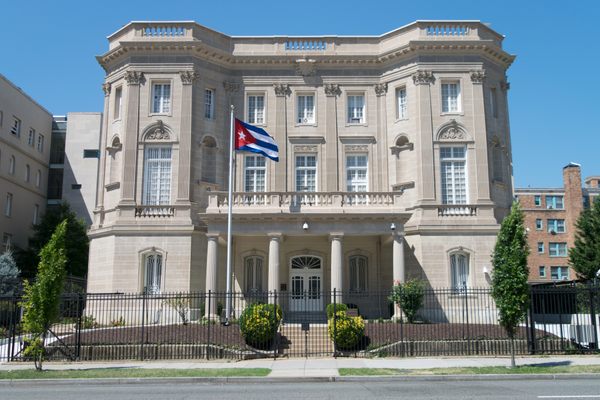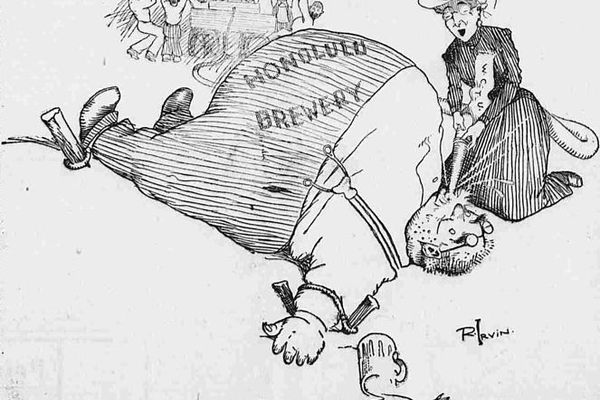Bootlegging Room in the Cannon House Office Building
During Prohibition, the U.S. Congress had an "official" bootlegger, with his own Capitol Hill office.
George L. Cassiday was a prolific Capitol Hill bootlegger who supplied hundreds of congressmen and senators with booze during Prohibition. Cassiday developed such a cozy relationship with the lawmakers that he was actually given office space in the Capitol complex to use as a base of operations.
Cassiday got out of the business following a 1929 arrest and took his story to the Washington Post, which published five back-to-back front page articles in the days leading up to the 1930 election, and helped wet Democrats retake a majority from dry Republicans.
George Cassiday served with a light tank unit during World War I. After the war, he was unable to return to his job as a railroad brakeman and struggled with underemployment. Cassiday started bootlegging in the summer of 1920 after a friend suggested that “liquor on Capitol Hill was bringing better prices than anywhere in Washington and that a living could be made supplying the demand.”
Bootlegging on the Hill required a similar skillset as lobbying, and Cassiday was adept at developing contacts and networking to expand his business. Introductions and referrals tended to come “along state lines,” as “the average representative was better acquainted with colleagues from his own State than with the members of the House at large.”
Cassiday expanded his network from one state delegation to another, and found that “it was not long before I had the run of the Senate and House Office Buildings and was spending more time there than most of the representatives.” On a typical day, he estimated making 20 to 25 deliveries.
Cassiday’s presence on the Hill escalated to the point that he was given an office in the basement of the Cannon House Office Building, across the street from the Capitol. The hideaway had a secret door knock, and members would often gather there to play cards and imbibe while waiting for floor votes.
Four out of five members of Congress continued to drink alcohol during Prohibition, but Cassiday’s shameless bootlegging eventually drew the ire of a teetotaling lawmaker. In 1925 he was arrested with a briefcase full of liquor by a capitol policeman “under the patronage of a Massachusetts representative.” Speaker of the House Nicholas Longworth pushed through a one-of-a-kind rule banning Cassiday from entering the House Office Building.
Undeterred, Cassiday went two blocks north and set up shop in the Russell Senate Office Building. He continued bootlegging for the upper chamber for another five years but was never able to rebuild the social circle he had enjoyed in the House. Senators kept Cassiday at arm’s length and generally dispatched secretaries or clerks to purchase his alcoholic products.
George Cassiday gave up bootlegging following another arrest and conviction in 1929; his decade-long stint on Capitol Hill was longer than the average congressional career. Cassiday happened to be wearing a green fedora when he was arrested, leading local crime reporters to dub him “the man in the green hat.”
There was strong public interest in the “famous official bootlegger,” and Cassiday went to the Washington Post with a series of tell-all front page stories. His five articles were published back to back in the days leading up to the 1930 midterm election and were a contributing factor in the landslide Democratic victory.
In 2015 the New Columbia Distillers released Green Hat Gin in honor of George Cassiday.
Know Before You Go
Lag/Long marks the Cannon House Office building where Cassiday headquartered his first operation. The House of Representatives Historian isn't clear which exact room he used. The building is open to the public.
Plan Your Trip
The Atlas Obscura Podcast is Back!




















Follow us on Twitter to get the latest on the world's hidden wonders.
Like us on Facebook to get the latest on the world's hidden wonders.
Follow us on Twitter Like us on Facebook